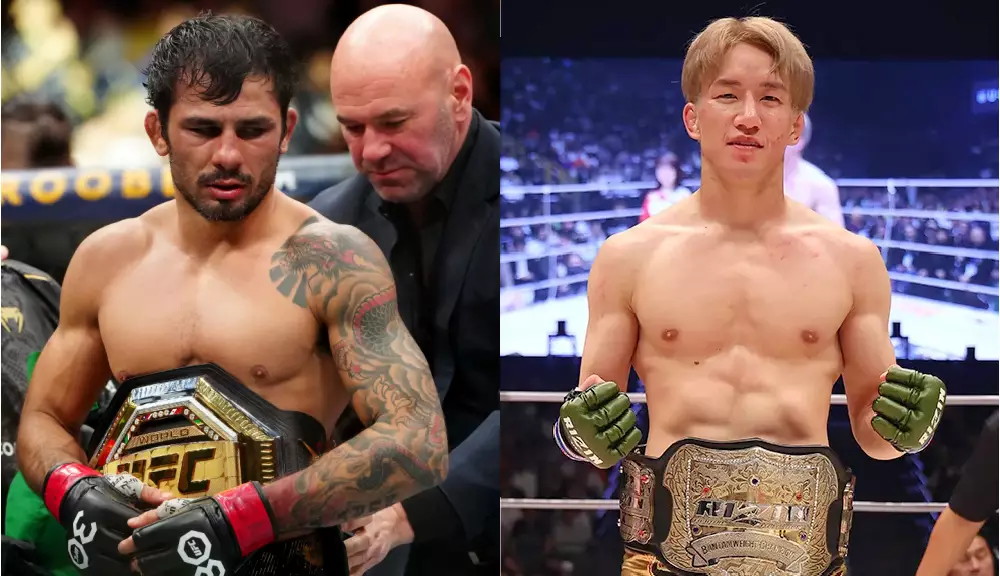As Kai Asakura prepares for his UFC debut against current flyweight champion Alexandre Pantoja at UFC 310, he finds himself on the cusp of a significant milestone – not only for his career but also for the broader narrative of the UFC’s 125-pound division. Historically, the flyweight class has been viewed as somewhat of an afterthought in the grand scheme of the promotion’s operations, often overshadowed by heavier weight classes. However, with Pantoja at the helm and Asakura entering the fray, there’s a palpable sense of transformation in the air.
The UFC has made attempts to streamline its roster in the past, yet the flyweight division seems to have found new life, characterized by a dynamic mix of talent that could captivate both devoted fans and casual viewers alike. This evolving landscape presents Asakura with a unique challenge and an equally compelling opportunity to make a mark. With the fight set for December 7 at T-Mobile Arena in Las Vegas, Asakura is not just entering the octagon as a fighter but as a potential game-changer for the organization.
Asakura suggests that his victory over Pantoja could be a boon for UFC, noting, “Let’s be honest: It’s good business for the UFC if I win.” This statement reveals more than mere hope; it highlights a calculated perspective on the sport’s intricate dynamics. His past as a former RIZIN FF champion offers a rich backstory that could bolster interest in the flyweight category, suggesting that a win could inject newfound energy into a division that, at times, has been regarded as stagnant.
His appeal lies in his ability to generate excitement, not only through skill but also through the potential for intriguing matchups going forward. As a fighter who has amassed nearly 80 percent of his victories through stoppages, Asakura is keenly aware that a singular knockout victory could elevate him to superstardom within the organization — and perhaps even catalyze a renaissance for the flyweight division.
While Asakura acknowledges the uphill battle he faces against an experienced and resilient champion like Pantoja, he remains confident in his ability to offer something fresh to the competition. “I have the ability to capitalize on one of his misses and put him to sleep,” he asserts, indicating a calculated strategy that hinges on precision and timing rather than raw brawn alone. This self-awareness could serve him well in the octagon, where the most successful fighters frequently capitalize on their opponents’ mistakes.
Asakura seems driven not just by personal glory but also by a sense of responsibility to elevate the sport’s visibility. “I hope one day Dana White will turn to the audience and say, ‘This kid is a special KO artist, a KO machine,’” he shared, revealing a desire to be recognized as a standout talent in a division that could benefit from strong headlines.
With the stage set for what could be a pivotal matchup, Asakura stands at a crossroads that may redefine his career and the future of the UFC’s flyweight division. The intrigue surrounding his debut aligns with the UFC’s broader strategy of spotlighting engaging fighters capable of delivering high-octane bouts. Whether or not Asakura leaves the octagon with the title, his participation alone could pave the way for new narratives and promotional possibilities within the sport, thereby reshaping perspectives on the flyweight class as a whole. As the fight approaches, all eyes will undoubtedly be on Asakura — both for his performance and for what his victory could signify for the UFC’s flyweight future.

